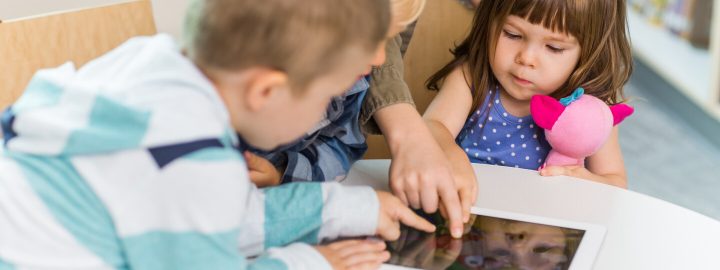Invest Research Centre’s new projects study the impact of the pandemic on the well-being of children and adolescents
Professor of social work Mia Hakovirta and Professor of child psychiatry André Sourander have received funding from NordForsk call Welfare among Children and Young People in the Post-Pandemic Nordics. Both projects examine the effects of the COVID-19 pandemic on the well-being of children and adolescents in the Nordic countries.
NordForsk granted approximately NOK 11 million (EUR 880,000) funding to the CrisisSolutions project consortium led by Professor Andre Sourander. The main objective of the project is to increase understanding of the psychosocial well-being and resilience of children and adolescents during the COVID-19 pandemic.
The project studies how various official measures related to the corona crisis affected the mental health and well-being of children and adolescents in the Nordic countries, as well as how the pandemic was reflected in the supply of mental health services in different countries.
– Once the study is completed, we will better understand the long-term impact of the pandemic on an individual and societal level. This is achieved by looking at welfare indicators from large population registers, collecting young people’s own experiences through surveys and interviews, and comparing the data we have accumulated from different countries, Sourander says.
The study will also look into the implementation of universal digital interventions to help children, young people and families in crisis situations that increase anxiety and stress.
According to Professor Sourander, the project is based on an inclusive approach, as children, adolescents and various organisations are invited to participate in workshops to plan research and develop interventions.
Europe is likely to see various crises in the future, such as new pandemics, wars, environmental disasters and economic crises. Therefore, knowledge of the impact of the corona pandemic on risk and resilience factors related to the well-being and crises of children and young people is important for building sustainable societies and better crisis management.
In addition to the Research Centre for Child Psychiatry of the University of Turku, Linköping University, the Arctic University of Norway and the University of Iceland participate in the CrisisSolutions project. The project will be implemented in 2023-2027.
Children First studies the impact of the pandemic on the living conditions of vulnerable children and adolescents
Hakovirta’s multidisciplinary project Children First aim’s to produce new scientific knowledge and understanding of the impact of the pandemic, especially on the living conditions and well-being of vulnerable children and adolescents, as well as on learning and longer-term educational prospects.
In addition, the aim is to develop ways to gain an understanding of the child’s functional capacity in school during and after crises. As a whole, the aim of the project is to strengthen social crisis management and preparedness for future crises, especially with regard to the perspective of children and adolescents.
–The research group will look into how policies have protected children and their rights during the crisis in order to enhance resilience and protect vulnerable groups in the society, and to develop policies to promote children well-being in the future, Hakovirta explains. These results can be utilized to develop and reform evidence-based child, family and social policies, and intervention strategies and practices.
The funding is 1,1 million euros for three years. The other project partners are Åbo Akademi, Stockholm University, University of Uppsala, University of Iceland, The Danish School of Education at Aarhus, and the ombudsman for children from Finland and Island.

